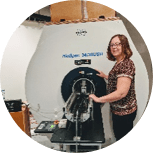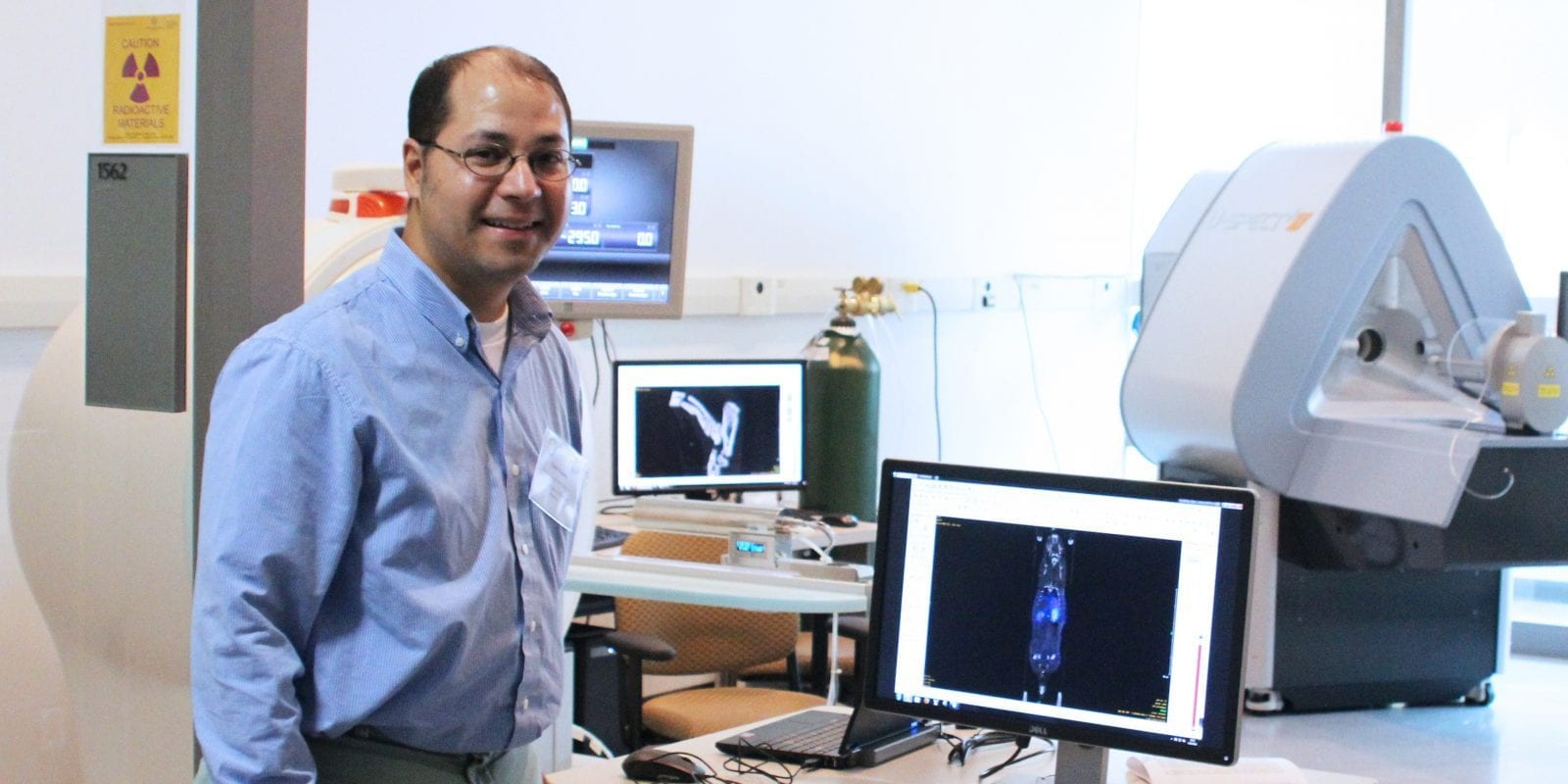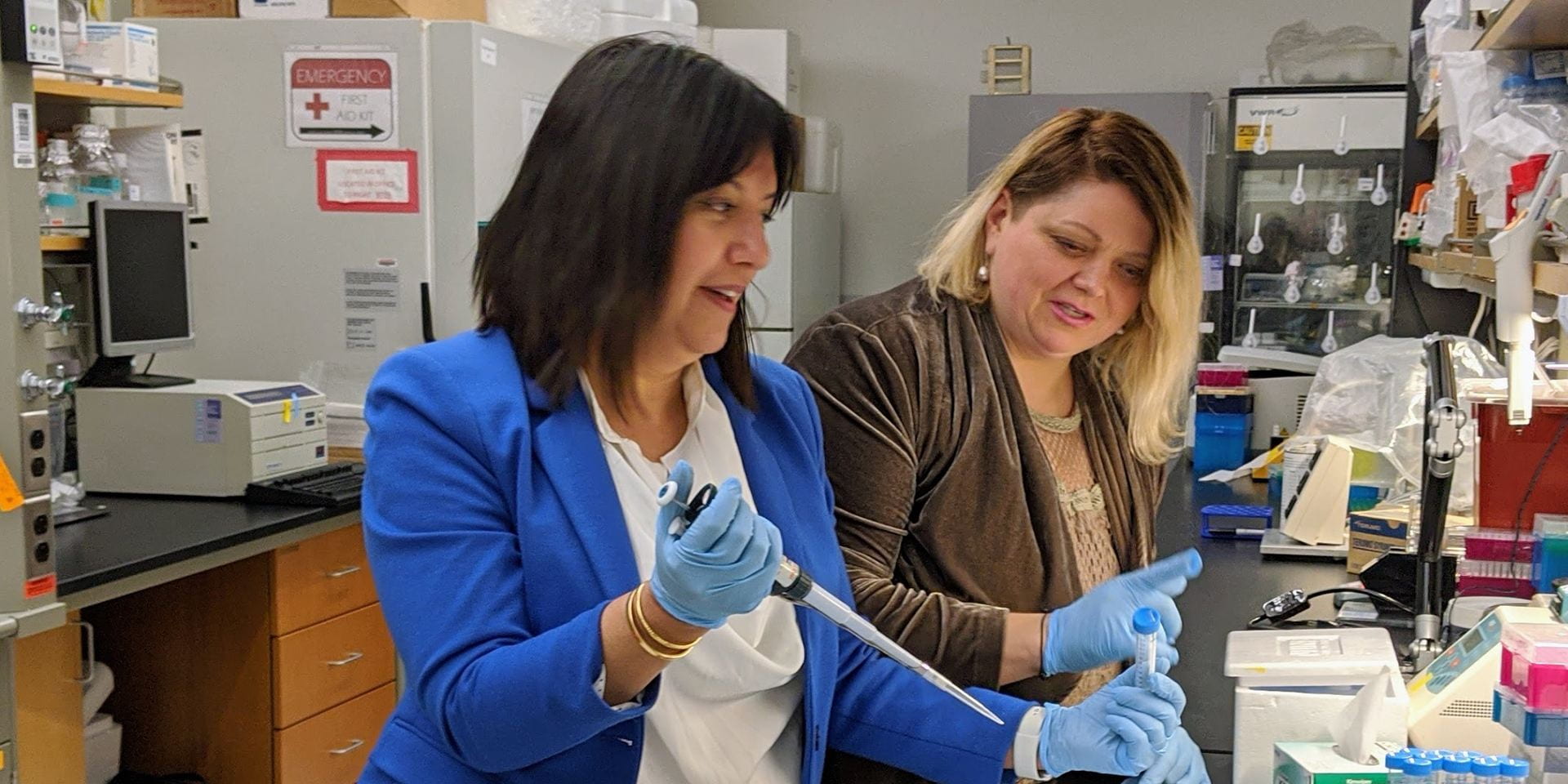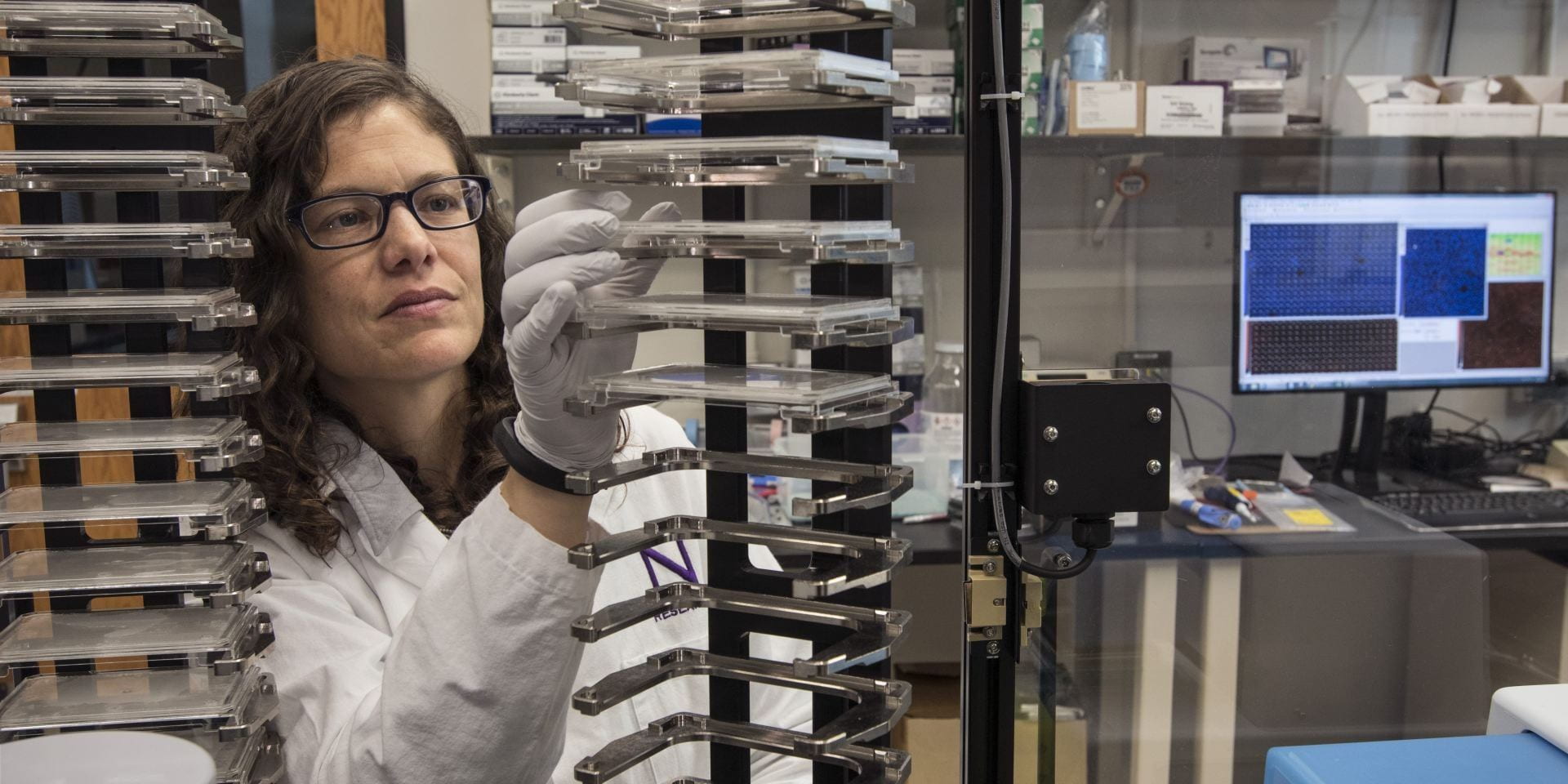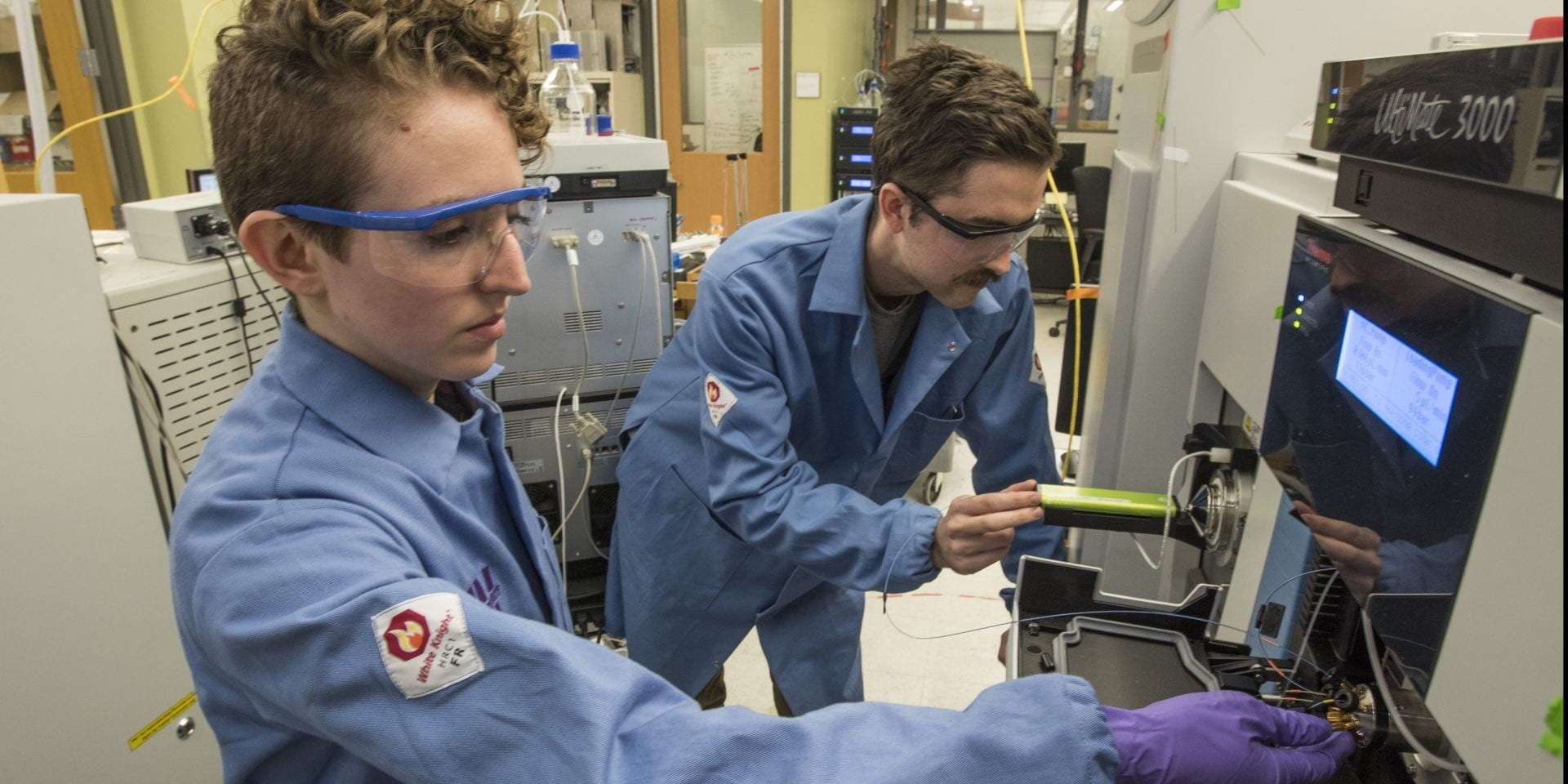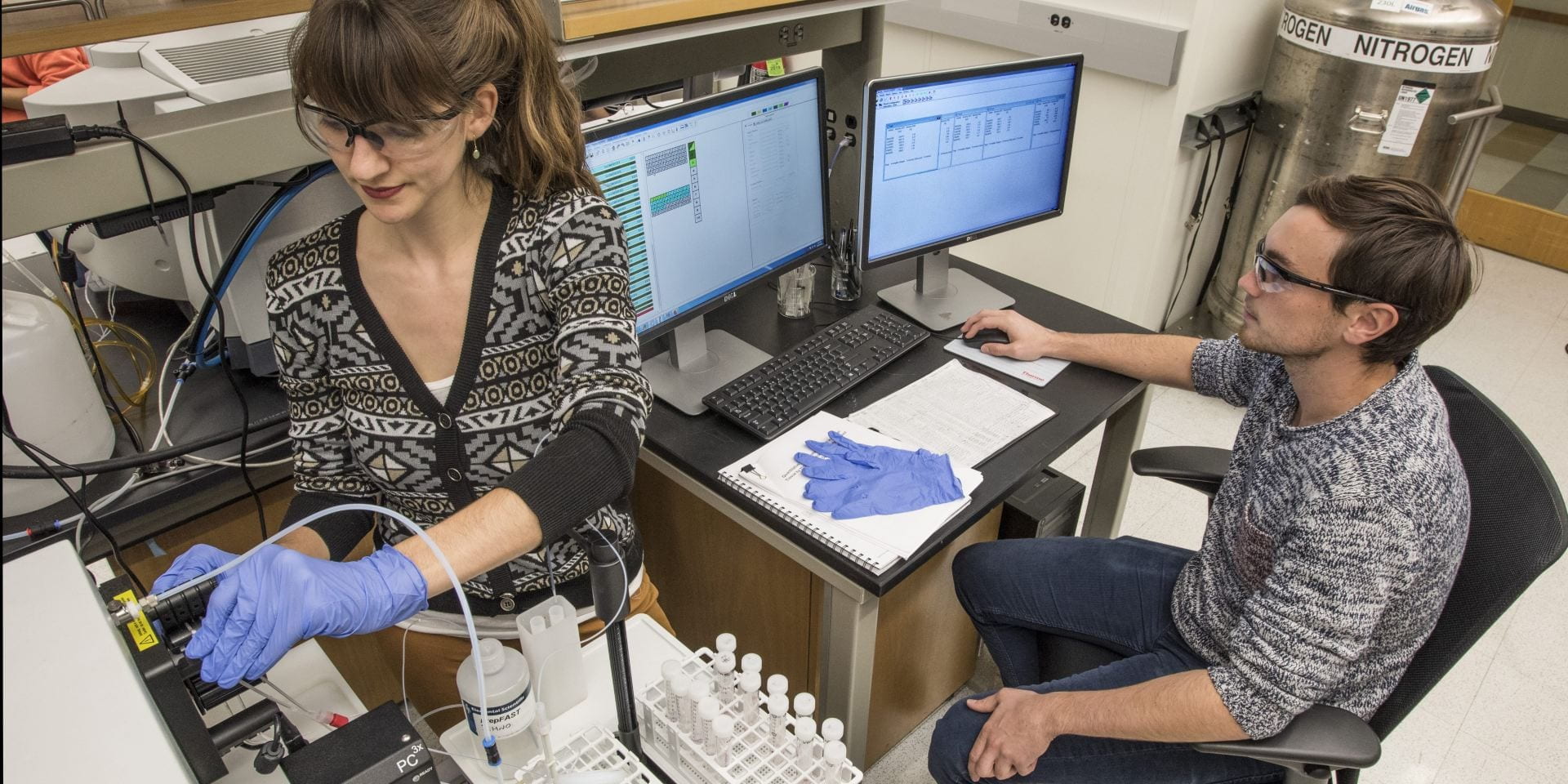From cutting-edge nanoscale imaging platforms to sophisticated computational modeling of drug target interactions, Chemistry of Life Processes Institute’s affiliated Proteomics Center of Excellence and six core facilities offer a deep bench of tools for discovery, analysis, and visualization. These technologies make possible steady progress in the understanding of the molecular underpinnings of cancer, neurological disorders, cardiac disease and more. Our expertise in developing therapeutics, and understanding the study of proteomics, epigenetic strategies to control cancer, and the role of metals in human health, distinguishes CLP from other major biomedical institutes.
CLP provides researchers and clinicians from Northwestern, industry and other academic institutions a comprehensive tool-set for identifying, developing and testing new drugs and approaches to therapeutics intervention.
Our resources include:
- Instruments and expertise needed to perform high throughput robotic testing for potential drug candidates
- Computational approaches to improving drug design
- Access to industry-quality expertise in synthesis of chemical compounds to improve the chemical features of potential drug candidate to increase potency and specificity
- Capabilities for preclinical testing for toxicity and efficacy
Northwestern Proteomics
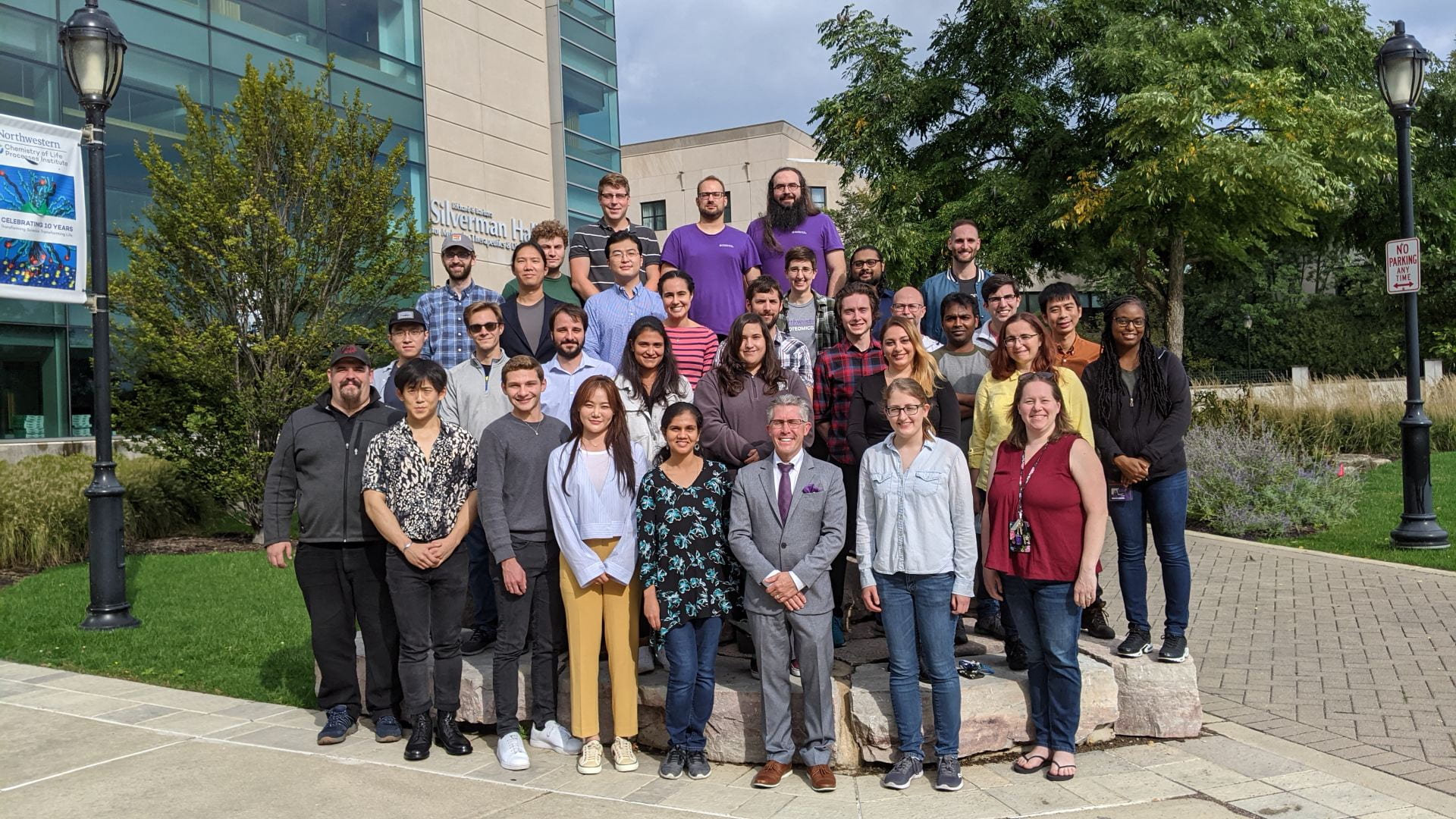
Proteins are the main drivers of human health and disease, they underlie every kind of disease from cancer to heart disease to Alzheimer’s. Northwestern Proteomics, a Proteomics Center of Excellence within the Chemistry of Life Processes Institute, is the leading center in the world for studying proteins using a ‘top-down’ approach that analyzes intact proteins to identify more precise targets for new drugs and diagnostics. The Center develops, applies, and develops new approaches to analyzing proteins using mass spectometry and partners with clinicians and scientists across disciplines to push the boundaries of precision medicine.
The Institute manages six shared research facilities. These facilities represent a $25M investment in high‐end instrumentation and expertise and provide 50 new services that enable investigators to identify, design and refine potential new therapeutics and diagnostics and to visualize their activity in living cells and tissues. The cores’ PhD level personnel develop powerful new tools and methods to support new basic and translational research at Northwestern and across the Midwest.
Biological Imaging Facility
Photonic and electron instruments, allowing researchers to capture high-quality images and videos of their specimens.
Center for Advanced Molecular Imaging
Imaging resources span length scales of molecules to whole animals. Instruments include MRI, IVIS Spectrum, SPECT, and PET.
Developmental Therapeutics Core
Operational laboratory that supports translational projects and exploratory drug development work.
High Throughput Analysis Laboratory
Instrumentation and expertise for the development and execution of high throughput biological analysis and screening.
Proteomics Core
Instrumentation and expertise to analyze proteins using mass spectrometry. Specializing in intact protein analysis.
Quantitative Bio-element Imaging Center
Quantitation and localization of bioelements using ICP mass spec, customized Hitachi HD2300 STEM for cryo-bio EM, and atomic absorption mass spectometry.

